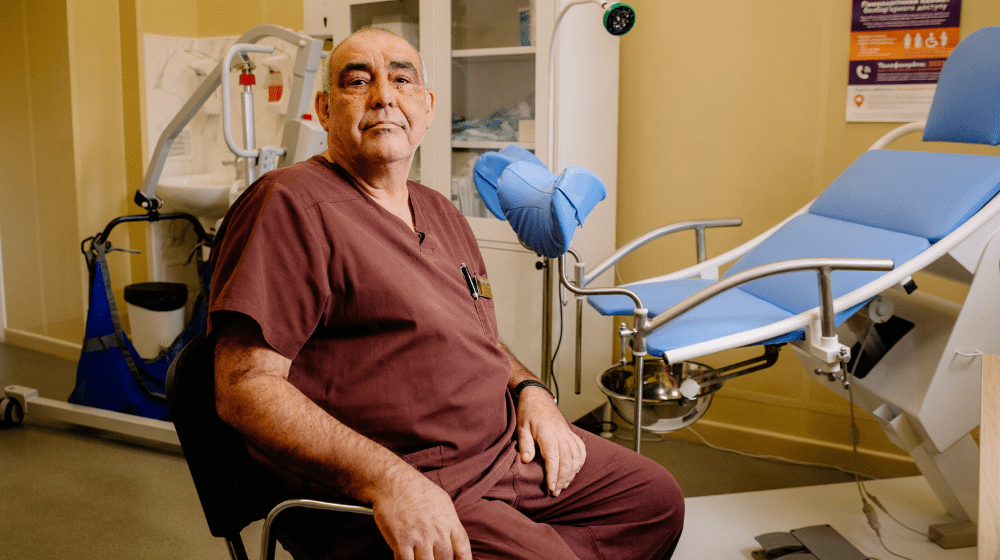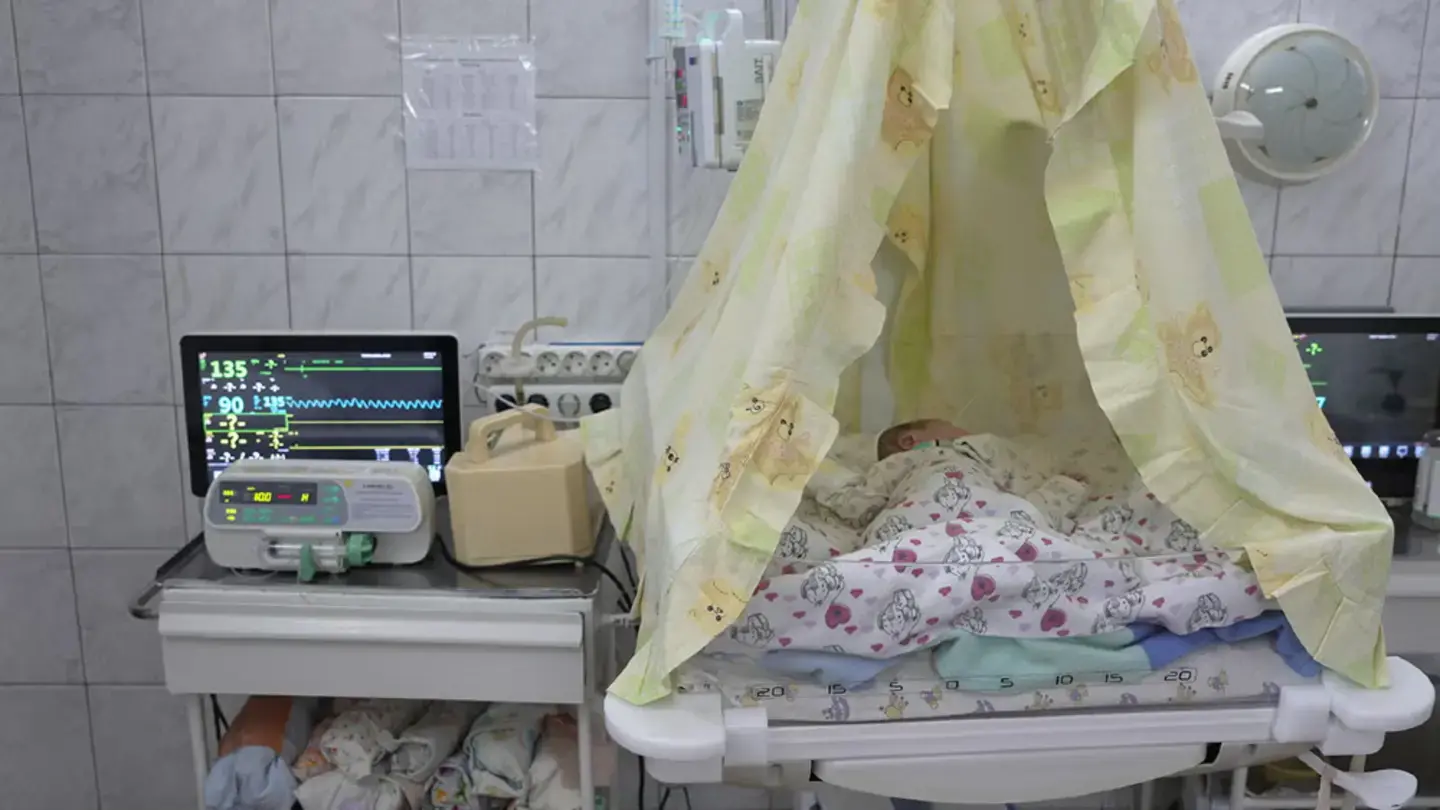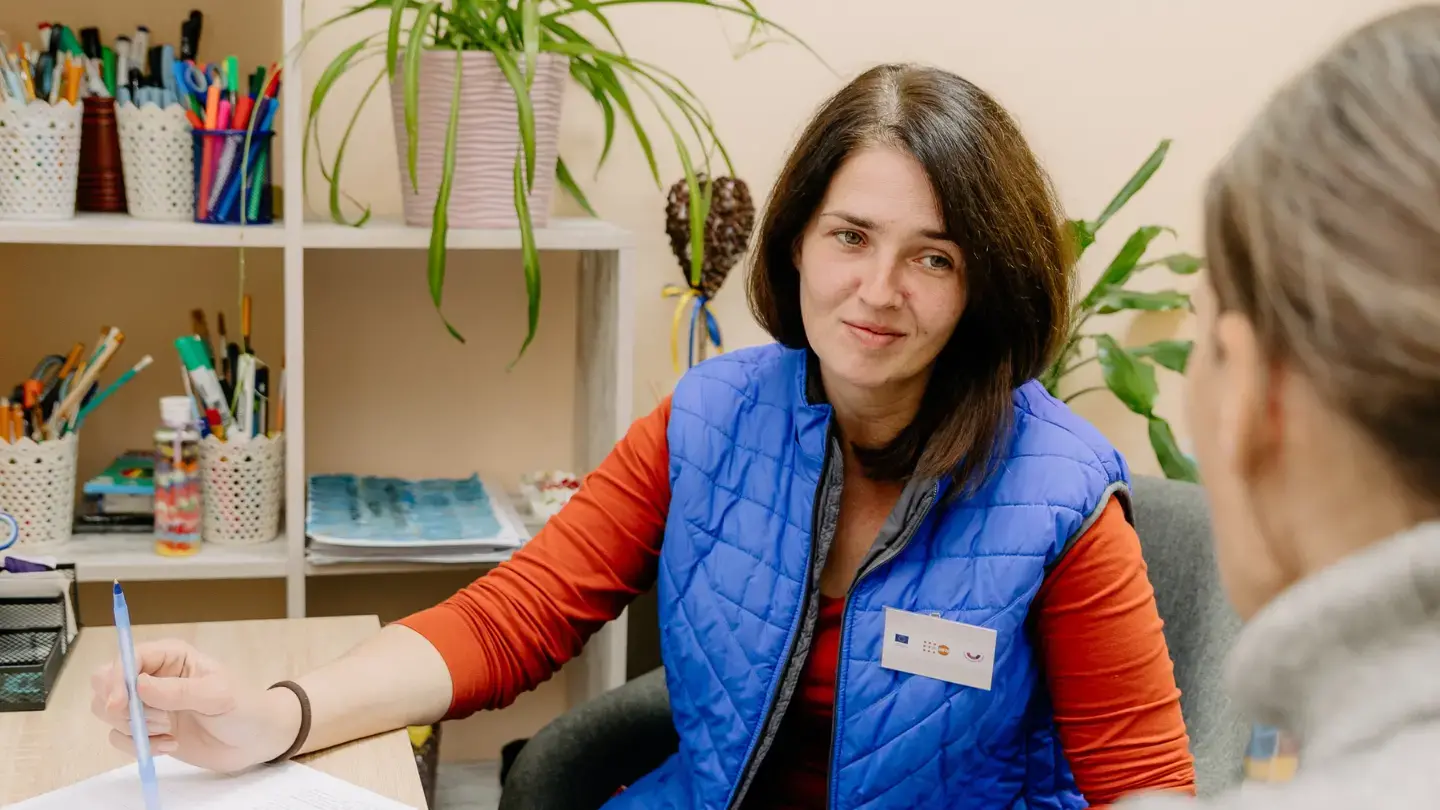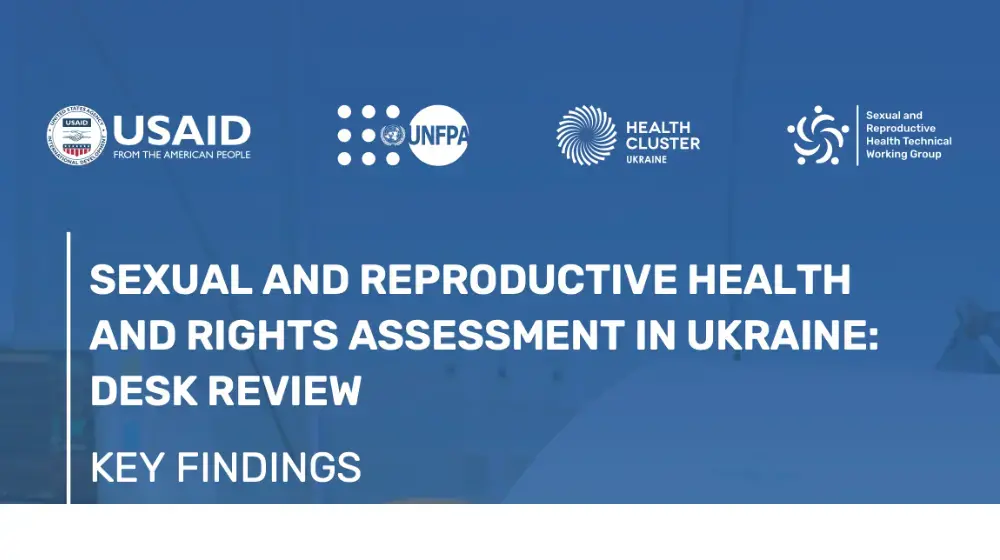In the Mykolaiv Oblast, with the support of the United Nations Population Fund, a mobile gynecological team has been operating for almost a year, providing quality medical assistance for sexual and reproductive health to residents of remote areas of the region. This includes local residents, internally displaced persons, elderly individuals, persons with disabilities, and those who have suffered from gender-based violence, including sexual violence.
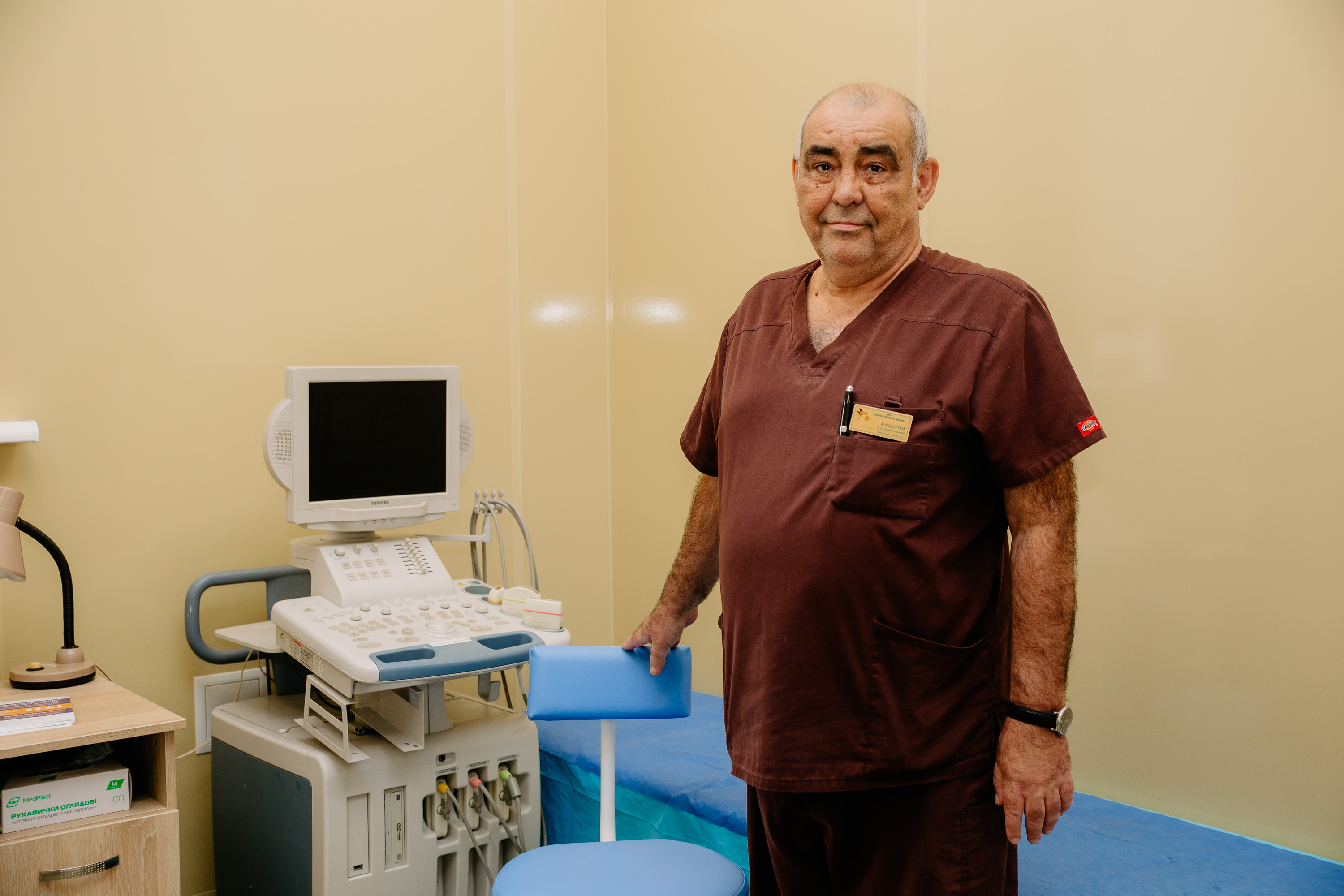
Ultrasound machine in Inclusive Barrier-Free Gynaecological Surgery Room © UNFPA Ukraine/Artem Nikiforov.
— How did the idea of creating a SRH mobile health unit for visits to populated areas in the Mykolaiv Oblast come about?
— This is an initiative of UNFPA. They proposed that we go to remote populated areas and provide assistance directly to women on-site. It was interesting because our region is quite large and, unfortunately, logistics are a major challenge. Our roads, as you can imagine, are not in great condition. Obstetrician-gynecologists are not available in all populated areas of the region. They are only present in key hospitals, which are in 3–4 districts, and in other places, gynecological services are not accessible.
Improving the accessibility of medical care for residents of remote populated areas is in our best interest. All seriously ill individuals will eventually come to our hospital. We will continue to work with them. Therefore, the earlier we detect illnesses, the easier it will be for us later.
With the onset of the full-scale war, the number of doctors in primary medical has decreased significantly. Some of them moved to other cities in Ukraine, and some fled abroad. The same happened in our department. But we have to keep working and, despite everything, fulfill our functions. Some doctors who are not occupied with hospital work at the moment are involved in this project. So far, it's working. In the future, more doctors will join us, making it easier to organize this process.
— Are you the only hospital in the region with such a mobile gynecological SRH mobile health unit?
— In the Mykolaiv Oblast, we are the only ones who go on such visits. There are hospitals in the city that provide medical care to urban residents, but due to the nature of their work, they cannot travel and provide this type of medical care.
— In your opinion, what is the advantage of the SRH mobile health unit work?
— You see, the percentage of women who have had a gynecological examination in the last few years is minimal. Sometimes, women haven't visited a gynecologist for 10 years, can you imagine? It's problematic for them to travel to the doctor, which takes time and involves some financial expenses. They have to travel 100–150 kilometers, spending an entire day. They don't go for routine check-ups at all. When the problem becomes severe, they have no other option but to go to the hospital. As a result, we have very advanced cases of diseases today, severe forms of chronic inflammatory conditions, prolapse of the genital organs, large uterine fibroids, and bleeding associated with menstrual cycle disturbances. There are many different conditions, including oncological diseases.
That's why the SRH mobile health unit doctors conduct outpatient appointments, provide recommendations to patients, and perform examinations on-site when necessary. We have all the necessary equipment for this, including special tests. Those who require further examination or hospitalization are either referred or transported to our department for treatment. Those who need oncological examinations are directed to the oncology center. We can issue electronic referrals, and patients then go to the doctor.
— Is the need for hospitalization common?
— It doesn't happen every time, but approximately every third visit results in someone being brought to the hospital. There are many such women, and they require special attention from us.
— Does the UNFPA provide you with all the necessary materials and equipment?
— Yes, we work with the support of UNFPA. They provide us with materials, examination kits, and cover the costs of our visits. The SRH mobile health unit vehicle is equipped with everything necessary to provide emergency care. There are oxygen cylinders, electrocardiographs, stretchers, and splints for injuries. We have a wide range of medications. Materials for examining women include mirrors, disposable underpass, gynecological kits, gloves, swabs for collecting samples, and rapid tests for detecting sexually transmitted infections. We also have medications that we can provide to women free of charge during the examination, including antibiotics, hormonal contraceptives, and condoms.
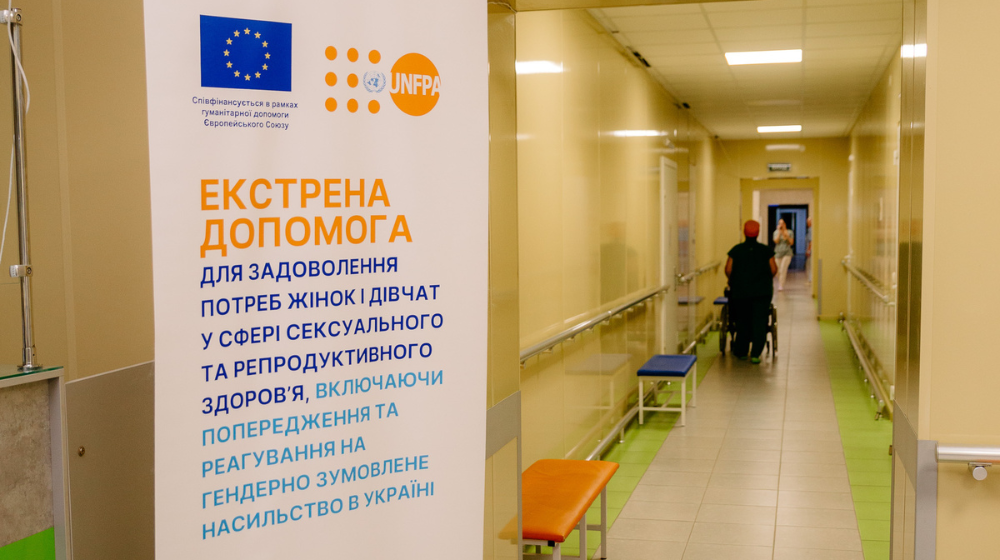
© UNFPA Ukraine/Artem Nikiforov
— How often do you receive these materials and medications?
— Once every three months.
— Is this enough for you?
— Absolutely. We have everything we need.
— Will the mobile SRH mobile health units continue its operations?
— Yes, in 2024, we will continue our work, without a doubt.
SRH mobile health units and Inclusive Barrier-Free Gynaecological Surgery Rooms operate as part of UNFPA's humanitarian response efforts with financial support from the European Union (EU), the Ministry of Foreign Affairs of Denmark, Canada, France, and the Republic of Korea.
The material was prepared by Alisa Melik-Adamyam and UNFPA Ukraine.

